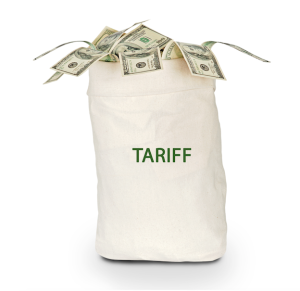Steel and Aluminum Tariffs Have Potential to Upend Kitchen Appliance Market
August 2, 2019
Tariffs could result in price increases that discourage consumers from investing in new appliances
By Vincent Salandro

The Trump administration's tariffs on aluminum and steel, as well as the threat of tariffs on finished goods from China, have the potential to disrupt the kitchen appliance market, reports The Freedonia Group. While the ultimate extent of the tariff's impact is unknown, the Cleveland–based research firm suggests sales for kitchen appliances could slump in the near future.
The kitchen appliance market accounted for roughly $18 billion in sales in the U.S. in 2016, according to Freedonia, and most indoor and outdoor kitchen appliances–including stoves, ovens, and refrigerators–contain large amounts of steel and aluminum.
The Trump administration's 10% tariff on aluminum and 25% tariff on steel have the potential to upend the industry through price increases that discourage consumers from purchasing new appliances. The tariffs on metal have already caused a ripple effect for many metal–based product industries, including the metal hurricane shutters and construction material industries.
The tariffs' effects on appliance manufacturers, however, won't be uniform, according to Freedonia. The effect on particular companies will depend on where their manufacturing operations are located, whether their supply chains cross the U.S. border, and where the makers source their steel and aluminum. Production costs could drastically increase for appliance manufacturers that source steel from countries not exempt from the metal tariffs.
Appliance companies such as Samsung, LG, GE Appliances, and Electrolux could face higher costs depending on the source of their steel and aluminum and whether they operate U.S. production centers. Whirlpool, an American appliance manufacturer that advocated for more stringent tariffs, has already faced slower growth because it outsources most of its metal from countries affected by the new regulations.
The price increases for kitchen appliances could be compounded, Freedonia reports, if the Trump administration follows through on its threats to implement a 25% tariff on finished goods from China. Many U.S. grill companies, such as WC Bradley and Weber–Stephen Products, contract much of their grill manufacturing to Chinese companies. If the 25% finished–good tariff is
Source: Builders